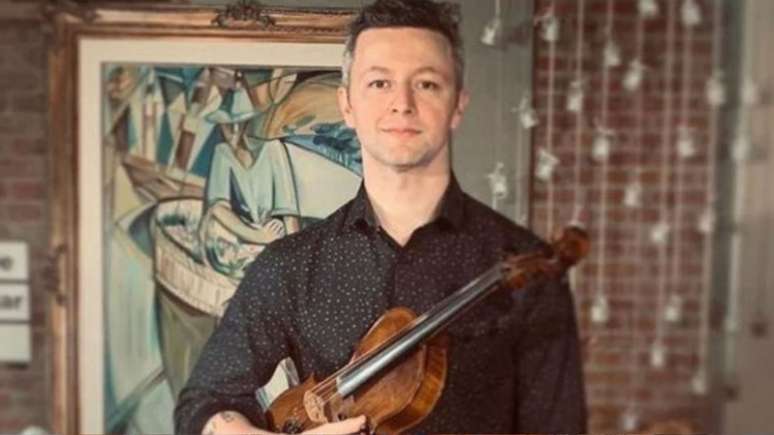We love its satire, but the series is missing something.
The third season of ‘The Boys’ has come to an end, after another raucous and mostly well received finale by fans. It’s a series known for engaging in the most clever kind of scoundrel satire imaginable, creating totally grown-up moments that you can’t help but chat about.
Many have praised the show’s author, Eric Kripke (who adapted it from the comics of the same name) and his team of incredible writers, producers and, of course, actors, for the raunchy party that is ‘The Boys.’ He manages to appropriately and eruditely address issues of sexism, racism, power, cancel-culture nationalism, homophobia, social media, the “alt-right,” and more.
But as a show that seeks to paint as much with its bellicose brush, there are some themes that get much thinner layers and cheap shortcuts to get the desired response from their viewers. ‘The Boys’ has already drawn an easy parallel between perverted sex and villainy for audiences to cast slurs on certain characters, while revering others.
And as with the second season, which featured a literal World War II-era Nazi, the third season once again used anti-Semitism as a quick attack without giving the Jews a chance to rebut. ‘The Boys’ doesn’t need to represent everyone; doing so would make a series even more overloaded. However, the third season began with three big winks directed at Jews, and anti-Semitism continues to provide part of the thematic backbone of the season. The lack of meaningful rebuttal is apparent when the other themes ‘The Boys’ give weight to are provided as a contrast.
In episode two, Patriot is sent to save a young woman from jumping off the roof of a building. He tries to dissuade her by appealing to her ‘Christian’ morality: isn’t wasting your life in this way a slap in the face from our Lord?

“I’m Jewish,” she replies, to which Patriot just shrugs. He then repeats the (fairly well-known) fact that Jesus wasn’t born on Christmas Day, but assumes this young woman wouldn’t know “because, you know, she’s Jewish,” she says, gesturing nonchalantly. The word ‘Jew’ here is used as an obvious insult: it is demeaning and dismissive. At the end of it all, what does she do? Jump.
It’s a satirical slap in the face of Superman, and his penchant for saving suicides by rescuing them before they hit the ground, instead of talking to them from the ledge in the first place. However, to make this joke, the Jews are the victim.

In another episode, while Billy Butcher is doing reconnaissance at the 33rd Annual Firearms Convention & Exposition, he sits on a panel by former Payback member Gunpowder, who in a lengthy tirade against the left mentions George Soros and to globalism.
These are very specific things to appeal to: images and people who are called in real, everyday life by right-wing news pundits who will use any tactic, including anti-Semitism, to further their white nationalist agenda. It’s deafening criticism if you’re paying attention, but there’s no Jewish voice reminding you to do so.

Aptly, Patriot uses the same, if less explicit, dog whistle when he takes part in The Cameron Coleman Hour and laments the “rich and powerful forces that operate in the shadows, omnipresently pulling strings.” That is, the anti-Semitic globalist conspiracy theory: that the Jews are the puppet masters who control the mainstream media, world politics and the economy, as well as immigration.
Anti-Semitism isn’t the only sociopolitical hot potato the series gets into, of course. It’s full of gut-churning misogyny, but this is organically refuted by a number of complex and charismatic female characters, including Starlight and Kimiko (although we’d also say the series misses its key queer character, Queen Maeve), who have everything. kind of flaws and powers.
Explores the Black Lives Matter movement and its nonsensical ‘All Live Matter’ counter-movement through A-Train and his brother Nate, juxtaposing direct action, protest, the personal and political, and the nuances of how one approaches systemic change. : from inside or from outside.
None of the anti-Semitic epithets would be surprising if there were only one Jewish voice behind the scenes. Even a supporting character, who can roll his eyes or make a well-timed joke. But there isn’t.
‘The Boys’ uses anti-Semitism and its conspiracy theories as a key basis for the dynamic of its series without providing a space for those ‘isms’ to be naturally frustrated. It remains a series that we love, that we praise and, therefore, that we can ask more of.
The first three seasons of ‘The Boys’ are on Amazon Prime Spain.
Source: Fotogramas
Camila Luna is a writer at Gossipify, where she covers the latest movies and television series. With a passion for all things entertainment, Camila brings her unique perspective to her writing and offers readers an inside look at the industry. Camila is a graduate from the University of California, Los Angeles (UCLA) with a degree in English and is also a avid movie watcher.


![It All Begins Here: What’s in store for Thursday 16 October 2025 Episode 1286 [SPOILERS] It All Begins Here: What’s in store for Thursday 16 October 2025 Episode 1286 [SPOILERS]](https://fr.web.img3.acsta.net/img/7d/99/7d99acbb3327f48a72b40f684092775e.jpg)
-qe1jxfyoo3eh.JPG)


